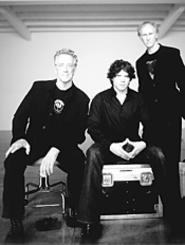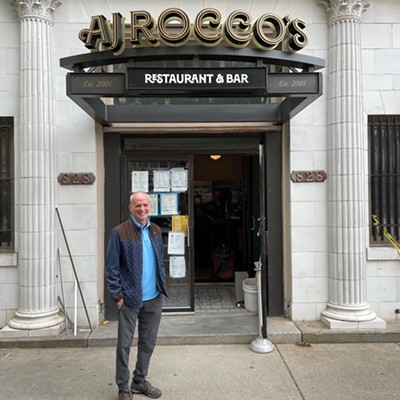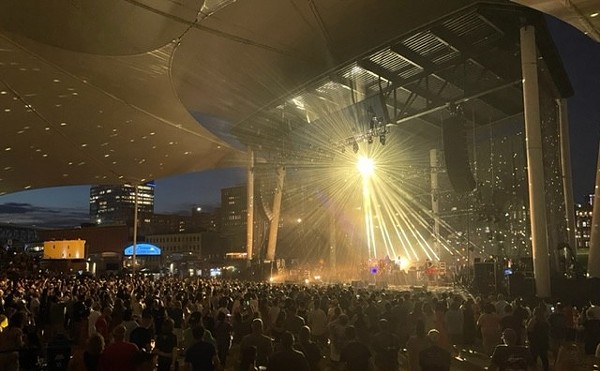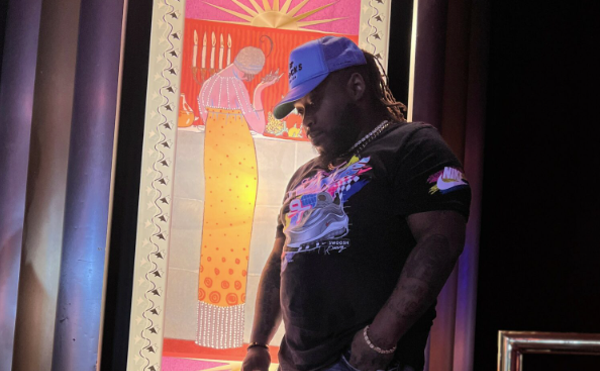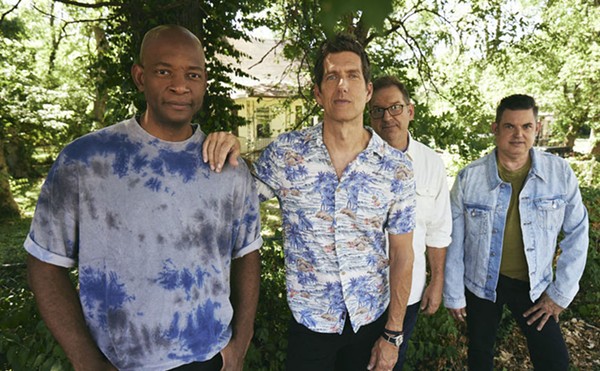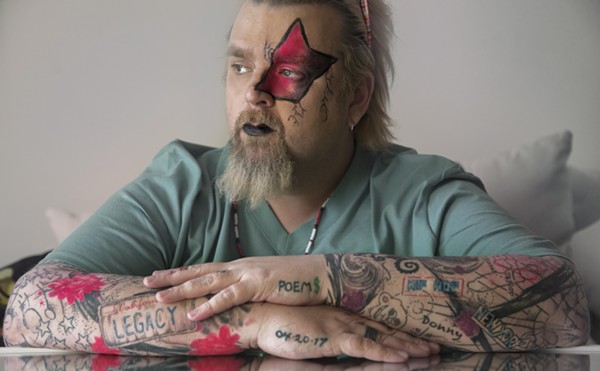Ray Manzarek's intuition has made him a millionaire. As the keyboard player for the Doors, one of rock and roll's most spontaneous and impulsive bands, Manzarek possesses a jazzbo's flair for improvisation that also aptly describes the band itself: Its raw, heedless blues was primal and instinctive, delivered with the dexterity of a gold-medal gymnast.
Three decades after the Doors' demise, Manzarek's intuitive powers remain intact. This is how he's able to anticipate criticism of the revamped Doors (now dubbed the Doors 21st Century, the lineup lacks both deceased frontman Jim Morrison and drummer John Densmore) -- before it's even spoken.
"How dare you go on without Jim!" Manzarek exclaims by phone from his L.A. home, early on a recent Thursday morning. To many diehards, seeing the Doors without Morrison is like scoring a joint but no matches. "Well, guess what, folks, Jim is dead. Would you like to hear Ray and Robbie [Krieger, guitarist] play Doors songs? Fine. If you don't want to, don't come. Jim's gone, man, and what we've done is make the best approximation of a Doors concert in the '60s and brought it into the 21st century."
In its own way, the Doors' return mirrors its original emergence. Born in the early '60s, when the last remnants of the stultifying '50s were crumbling amid the British Invasion, the Doors positioned themselves on the cusp of a social, political, and sexual revolution. The band's appearance on The Ed Sullivan Show was a defining moment: Morrison came clad in his trademark hermetically sealed leather pants, looking like an orgasm incarnate. As the group ripped through "Light My Fire," the singer famously refused to omit the word "higher," with its vague drug connotations, from the bridge of the song. The mushroom cloud of controversy that soon enveloped the band was a precursor to a career marked by one incident after another. More than any other band of their time, the Doors brought a very real sense of danger to rock and roll.
Today, that danger is as far removed from rock as polyester pantsuits. Kiddie punks, picture-perfect teen pinups, and God-fearing rockers rule the charts, making these times often feel uncomfortably reminiscent of when prefabricated popsters were the norm.
"I was there in the '50s -- that's when I grew up -- and this period reflects exactly what was going on then and exactly what the hippies were trying to break free from: repression, war -- it's all going on," Manzarek says. "People are afraid to speak their minds; look at what happened to the Dixie Chicks. The Joe McCarthy instincts were never dead, and guess what, man, here they are, back again. People are afraid to improvise, afraid to be spontaneous, afraid of the danger. And the audience is so programmed to accept perfect execution that they couldn't abide a mistake."
Manzarek has never been afraid of failure, of putting himself in a position to fall flat on his face in front of thousands. The Doors themselves were prone to do so, especially when Morrison's chemically enhanced ramblings became too self-indulgent or his antics too derailing. This may explain how unshaken Manzarek sounds when speaking of the Doors' oft-criticized new lineup, which also includes former Cult frontman Ian Astbury, drummer Ty Dennis, and bassist Angelo Barbera. The project was put in motion two years ago by a well-received episode of VH1 Storytellers that featured the remaining Doors performing with a rotating cast of singers, including Perry Farrell, Scott Weiland, Astbury, and others. Last summer, the surviving Doors were asked by Harley-Davidson to commemorate their 100th anniversary with a concert in L.A. The group recruited Astbury, who impressed the rest of the band so much, they asked him to tour with them.
"What I love about him is that he's not Jim Morrison; he's being himself, and he just happens to be in that same psychic space that Jim Morrison comes from -- shamanic, Native American spirituality, Celtic Christian -- that was Morrison; that's Ian Astbury," Manzarek says. "Morrison does not have an exclusive on being that kind of person, and Ian is one of those kinds of people. It's like plugging in Jim's brother."
The band's performance on The Tonight Show earlier this year quieted many non-believers. Clad in dark, wraparound sunglasses and black leather, Astbury exuded all of Morrison's cocksure swagger. His libidinous howl suited the music well; his defiant drawl made it difficult to discern whether he wanted to kiss you or kill you. Just like Morrison.
But none of this has stopped Morrison's family from filing suit against Manzarek and Krieger for allegedly misusing the band's name and misrepresenting the new lineup as the Doors. Densmore, offered a chance to join the retooled group, blew out his ear at the VH1 taping and can no longer play hard-hitting rock and roll, according to Manzarek. He's in on the litigation too, for the same reasons as Morrison's family. Even Densmore's original replacement, former Police drummer Stuart Copeland, has joined in: After being hired for the tour, Copeland injured his elbow, which led the Doors to enlist Dennis. Copeland then sued the band for breach of contract, putting the tour temporarily in jeopardy.
"The skepticism is that we can't do it and that we're just going to rehash the old songs. But God, would I do that? Would Robbie Krieger do that?" Manzarek asks incredulously. "We're playing it for the improvisation -- that's why we're out there, to just rock out again, one more time. We're gonna rock out for a couple more years, before we put this to bed for good."
The rocking out includes a stop in Cleveland, where the old Doors logged some of their most over-the-top performances. The band's video for "Roadhouse Blues" contains footage of a Cleveland gig that looks like a free-for-all, with police whaling on fans who charged the stage like inmates in a jailbreak.
"Oh my God, the Cleveland riots, man, Jesus Christ," Manzarek recalls. "It was total riots. People charging the stage, people coming and coming and just wanting to touch Jim, John, or me. In those days, cops freaked out. 'Get them back off the stage!' Well, what's going to happen? Nothing's going to happen. But they didn't understand it in those days," Manzarek chuckles, still caught up in the memory. "Yeah, Cleveland was a very, very powerful town."

